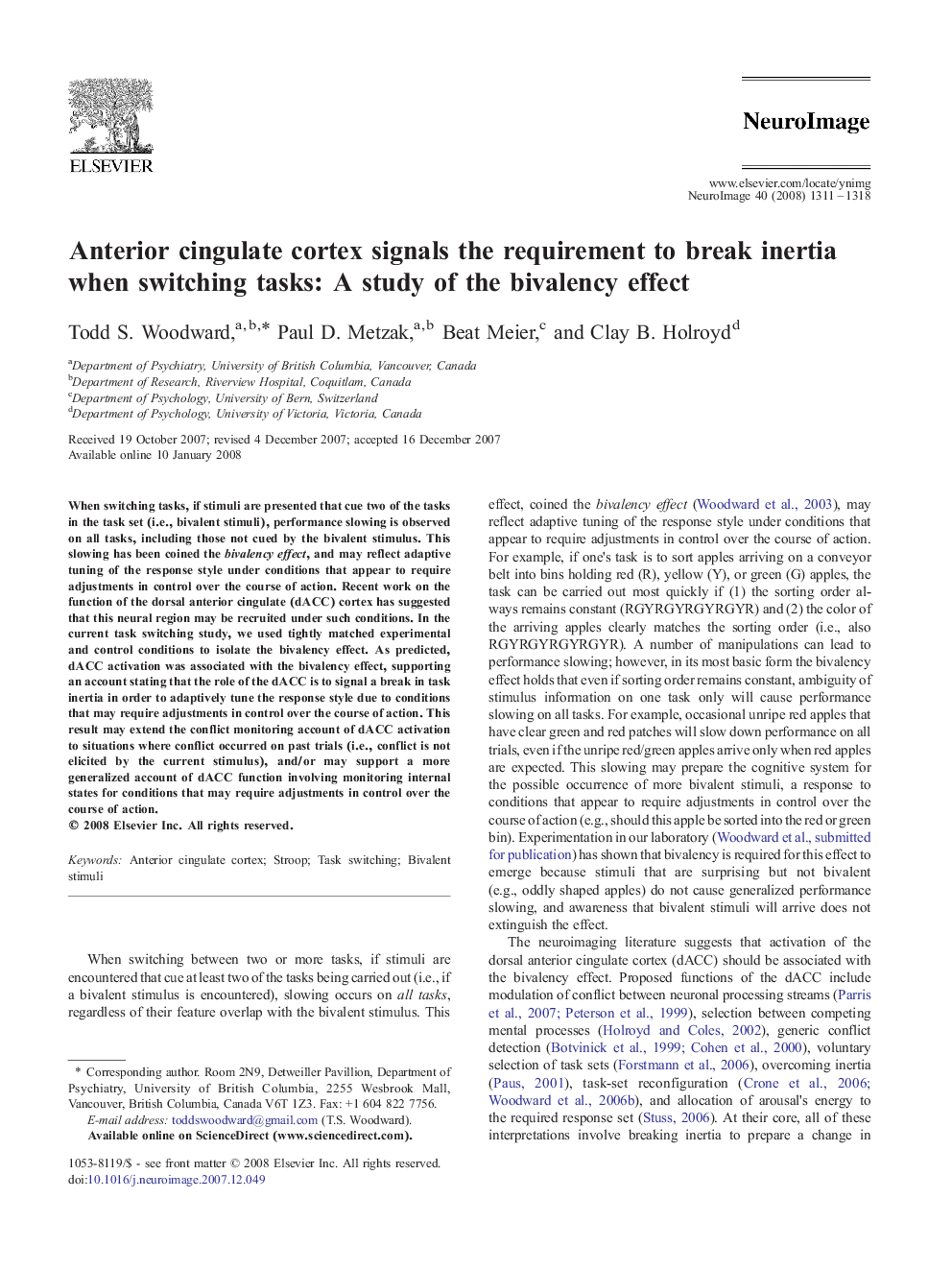| کد مقاله | کد نشریه | سال انتشار | مقاله انگلیسی | نسخه تمام متن |
|---|---|---|---|---|
| 6039707 | 1188824 | 2008 | 8 صفحه PDF | دانلود رایگان |
عنوان انگلیسی مقاله ISI
Anterior cingulate cortex signals the requirement to break inertia when switching tasks: A study of the bivalency effect
دانلود مقاله + سفارش ترجمه
دانلود مقاله ISI انگلیسی
رایگان برای ایرانیان
کلمات کلیدی
موضوعات مرتبط
علوم زیستی و بیوفناوری
علم عصب شناسی
علوم اعصاب شناختی
پیش نمایش صفحه اول مقاله

چکیده انگلیسی
When switching tasks, if stimuli are presented that cue two of the tasks in the task set (i.e., bivalent stimuli), performance slowing is observed on all tasks, including those not cued by the bivalent stimulus. This slowing has been coined the bivalency effect, and may reflect adaptive tuning of the response style under conditions that appear to require adjustments in control over the course of action. Recent work on the function of the dorsal anterior cingulate (dACC) cortex has suggested that this neural region may be recruited under such conditions. In the current task switching study, we used tightly matched experimental and control conditions to isolate the bivalency effect. As predicted, dACC activation was associated with the bivalency effect, supporting an account stating that the role of the dACC is to signal a break in task inertia in order to adaptively tune the response style due to conditions that may require adjustments in control over the course of action. This result may extend the conflict monitoring account of dACC activation to situations where conflict occurred on past trials (i.e., conflict is not elicited by the current stimulus), and/or may support a more generalized account of dACC function involving monitoring internal states for conditions that may require adjustments in control over the course of action.
ناشر
Database: Elsevier - ScienceDirect (ساینس دایرکت)
Journal: NeuroImage - Volume 40, Issue 3, 15 April 2008, Pages 1311-1318
Journal: NeuroImage - Volume 40, Issue 3, 15 April 2008, Pages 1311-1318
نویسندگان
Todd S. Woodward, Paul D. Metzak, Beat Meier, Clay B. Holroyd,